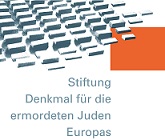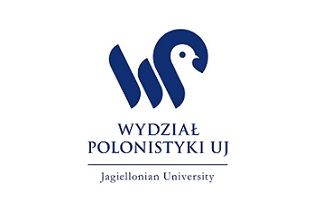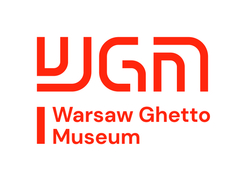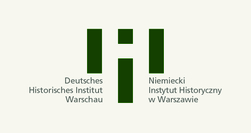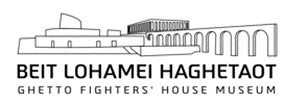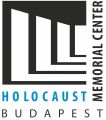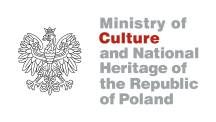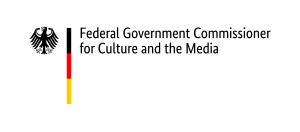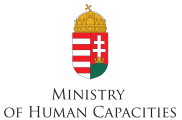The online debate will take place on YouTube on 10 November (Tuesday) at 15:00–18:30 CET.
* Please note that all times are indicated according to Warsaw time, i.e. Central European Time (UTC+1:00).
KEYNOTE
Éva Kovács (Vienna Wiesenthal Institute for Holocaust Studies)
Forgetting by Remembering: On the Europeanisation of Local Memories of the Shoah
PANEL PRESENTATIONS
Naum Trajanovski (Polish Academy of Sciences, Warsaw)
The Holocaust and the Rescue of the Macedonian Jews: Communist and Post-Communist Cinematic Perspectives
Anna Chebotarova (University of St. Gallen)
Holocaust Memory and Antisemitic Attitudes in Contemporary Ukraine
Nadja Danglmaier (University of Klagenfurt), Daniel Wutti (University College of Teacher Education Carinthia)
Remembrance Culture in Border Regions – Towards an Inclusive, Cross-Border Memory
Ida Richter (Selma Stern Center for Jewish Studies, Berlin-Brandenburg)
The Entanglement of the Holocaust with Human Rights: The Case of Raoul Wallenberg’s Early Reception
Chair: Gábor Danyi (ENRS)
Commentary: Zofia Wóycicka (German Historical Institute, Warsaw)
ABSTRACTS
Éva Kovács
Forgetting by remembering. On the Europeanisation of the Local Memories of the Shoah
The Shoah destroyed the substance of Austrian Jewishness. The emigration of the survivors after 1945 and the indignation of the Austrian society resulted in the dislocation of the memory of the Shoah itself. Since the second half of the 1990s, a large‐scale restitution process and a new government program of commemoration have begun. Seemingly, Austria has successfully joined the mainstream of the European culture of memory. However, Austrian Jews as victims or survivors gradually came to be missing or played a minor role in the daily practice of the local politics of memory. One has the impression that the ‘local Jews’ have been overshadowed by the Europeanisation of the Shoah. The paper presents an Austrian case as a paradoxical example of ‘creative forgetting’ or ‘forgetting by remembering’.
Naum Trajanovski
The Holocaust and the Rescue of the Macedonian Jews: Communist and Post-Communist Cinematic Perspectives
The present paper aims at discussing the cinematic accounts on the Holocaust and the rescue of the Macedonian Jews in the post-WWII Macedonian cinema. The study deals with four films, two from the late Macedonian communism - “Shoot” [mk. Istrel] (Branko Gapo, 1972) and “Node” [mk. Jazol] (Kiril Cenevski, 1985), and two from the third post-communist decade - “Third Half” [mk. Treto poluvreme] (dir. Darko Mitrevski, 2013) and “The Liberation of Skopje” [mk. Osloboduvanje na Skopje] (Danilo & Rade Šerbedžija, 2016). I argue that the cinematic production provides an exceptional environment for understanding the major discursive shift over the rescue of the Macedonian Jewry in contemporary North Macedonia. More precisely, I juxtapose the Yugoslav Macedonian cinematic treatment of the Holocaust within the framework of the People’s Liberation War (1941-1945) and the post-Yugoslav Macedonian cinematography – which aims at repositioning the Holocaust and the rescue of the Macedonian Jewry as (i) an ethno-centric Macedonian struggle and (ii) a metonymy for the post-1990s Macedonian-Bulgarian bilateral relations. The most recent Bulgarian-Macedonian Friendship Agreement (2017), however, acts as a particular game-changer in these regards – enacting what Valérie Rosoux depicts as a “maximalist approach” to the European integration, “presupposing the existence of a shared narrative of the past,” rather than the distinct mode of nation-centered historiographies and memory politics (2017, 327-329). The analysis will thus anticipate the further cinematic developments, with a single stress on the public debate on the post-2017 Macedonian cinema dealing with the WWII. Finally, the cinematic narratives, while being illustrative for the aforementioned discursive shift, failed to appear in the Macedonian Jewish scholarship. Thus, I employ multimodal discourse analysis for tracing the cinematic narratives, as well as a triangulation of the historiography, media discourse and public debate – for mapping the immediate reactions on the films in the foci in their synchrony and diachrony.
Anna Chebotarova
Holocaust memory and the antisemitic attitudes in contemporary Ukraine
Seven decades after its end, World War II remains one of the cornerstones of collective memory in Ukraine. One can argue that we are in the midst of a transition of the memory about the Holocaust (as well as of almost the entire Second World War) from the realm of communicative memory to various forms of cultural memory against the background of diversification and digitalization of the channels of memory transition. The interpretation of the traumatic wartime past occupies a prominent place on the agenda of post-communist states and societies and history often serves as the legitimizer of present issues and is therefore highly politicized. Analyzing anti-Jewish attitudes in East-Central Europe today, researchers often refer to the phenomenon of “antisemitism without Jews”. One of the most drastic outcomes of World War Two for contemporary Ukraine was its radical national homogenization. According to the 2001 Ukrainian census, there are approximately 100 000 Jews (0.2%) in the country, which was home to one of the largest European Jewish communities before the war. Yet the 2019 “ADL Global 100: An Index of Anti-Semitism” survey revealed that 46% of the Ukrainian population still harbor antisemitic views. As many researchers have repeatedly stressed, the subject of contemporary antisemitism is often not real Jews, but the images of them, or images from the past, transmitted by previous generations. In my presentation, I will explore the multilevel and multidirectional relations between (trans)national and local Holocaust memory and the social distance towards Jews in Ukraine today. I apply mixed method research - the perspective that combines both data from previously conducted research, nationwide representative surveys as well as in-depth interviews. I argue that in the case of Ukraine - the land of “dismembered multiethnicity” - the transmitted memory of Jews and the Holocaust remains one of the key factors in the formation of contemporary antisemitic attitudes.
Nadja Danglmaier – Daniel Wutti
Remembrance culture in border regions – towards an inclusive, cross-border memory
In Austria in the last century, victims of National Socialism had little space in public memory. In the past years, researchers noticed a discourse change and nowadays, even more and more Austrian teachers are willing to deal with regional manifestations of National Socialism, including topics such as collective guilt and the collaboration of Carinthians with National Socialism. Regional anecdotes seem to be of interest for contemporary pupils. What is commonly named a ‘culture of memory’ is thus a dynamic field of negotiations and conflicts, an unfinished process of debate on what a group should call (its) history. These processes of social negotiation of memory are particularly interesting in border regions. While border regions, such as e.g. between Austria and Slovenia, were characterized by separation, prejudices and ignorance towards the respective neighbours, today we have to consider which historical narratives can have an inclusive effect and connect people and regions. Memory on NS and the Holocaust is currently determined by several factors: the disappearance of contemporary witnesses, the change of generations, the mediation of memory and new forms of remembrance in immigration societies. We are at the transition from communicative to cultural memory . This leads to the question, how students today can find access to historical events of the world wars, NS and the Holocaust, and which parts of history are useful for dealing with questions relevant to the future. And this is the question we have been pursuing in research projects whose approach and results we would like to present. Our presentation deals with the question of establishing an inclusive remembrance, to which different inhabitants of the region can connect. In school projects led by us in Austria and Slovenia, the historical narratives in the border region were examined. Narratives with inclusive and unifying effects were filtered. Through the exchange between teachers, pupils and researchers in workshops, didactic materials were created. The focus was on how the history of the border region can be communicated in an interesting way in the classroom, considering the diversity of the pupils.
Ida Richter
The Entanglement of the Holocaust with Human Rights: The Case of Raoul Wallenberg’s Early Reception
Since 2012, the Council of Europe awards the “Raoul Wallenberg Prize” to individuals and organizations promoting human rights. This illustrates that today, the memory of help and rescue for Jews during the Holocaust and human rights discourse are closely intertwined. Especially Raoul Wallenberg (1912-disappeared 1945), one of the most well-known rescuers of Jews during the Holocaust, is frequently depicted as “human rights defender”. As an envoy of the Swedish foreign ministry, he provided help to persecuted Jews in Budapest from July 1944 onwards, among other things by issuing so-called protective passports and establishing safe houses under the Swedish flag. After the liberation of Budapest by the Red Army in January 1945, Wallenberg disappeared in the Soviet Union, his fate remaining unresolved until today. In this paper, the genesis of the seemingly natural connection between commemorations of Raoul Wallenberg and human rights is scrutinized critically. Conventionally, it is assumed that memories of the Holocaust and the development of human rights regimes after 1945 were closely connected from the outset, as it is stated for instance by the sociologists Daniel Levy and Natan Sznaider (Levy and Sznaider 2004: 150), who presented the first comprehensive study on the potentially global, nation-state transcending dimensions of Holocaust memory. Recently, historians and legal scholars began questioning the assumption that the strong link between Holocaust memory and human rights discourse already emerged soon after the Second World War (Moyn 2017:87-97, Duranti 2012). The paper takes up these impulses by investigating the early reception history of Raoul Wallenberg regarding the question of its connection to human rights discourse. The case of Raoul Wallenberg is especially relevant for addressing the emergence of the connection between the Holocaust and human rights as he was commemorated from early on across national borders and is today frequently depicted as “human rights defender”, as the creation of the “Raoul Wallenberg Prize” illustrates. Among the questions the paper addresses are: Were Raoul Wallenberg’s actions framed in human rights terms in the 1940s and 1950s? Which other forms of universalizing narratives emerged at that time around Raoul Wallenberg? With its focus on the historical connection between Holocaust memory and human rights, the proposed paper fits the first thematic block of the conference “Theoretical concepts and approaches”.


